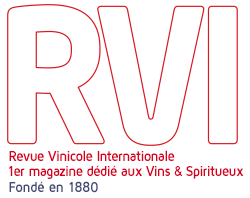China’s wine imports hit by government crackdown.
Wine imports into China slowed markedly in 2013 as the slowing economy and crackdown on conspicuous consumption took a toll. Stuffed distribution channels also led importers to dial back orders. Bottled still light wine imports increased by just 5% in 2013 over 2012 to 30.7m cases, far below the high double-digit levels seen in recent years. French bottled imports rose by just 1% to 14.3m cases (representing a 47% share of the market), while the US was the only major supplier country to register a decline (-1% to 1.4m cases). This was partly due to the tightening supply situation in the US market. Chile was the big winner, with bottled imports rising by 23% to 2.8m cases. Argentina also posted a double-digit increase from a smaller base. Meanwhile, bulk wine imports fell by -27% to 9.9m cases. Many of these bulk imports are used for blending with Chinese brands. Bulk imports from France were down -44%, Australia -49%, Italy -97% and Spain -71%. Again, Chile outperformed the market, with bulk imports rising by 45% to 58m litres; Chile now has a 65% share of the bulk market. Sparkling wine was the bright spot, rising by 38% to 966,000 cases.
The discouraging aspect is that the market slowed significantly in the second half of year, with the fourth quarter being particularly difficult. Bottled still light wine shipments fell by -8% in the fourth quarter over the same period in 2012, and bulk wine by -7%.
In related news, the Conseil Interprofessionnel du Vin de Bordeaux (CIVB) announced that the volume of wine from Bordeaux sold increased marginally by 0.3% to 61.8m cases in 2013, while by value it fell -1.4% to €4.24bn ($5.9bn). Sales in China declined -16% by volume and -18% by value, representing a loss of about €60m ($83.2m). “The slowdown of sales in China is largely due to political changes within the Chinese Government,” CIVB president Bernard Farges told journalists at a briefing. China and Hong Kong combined now account for about a quarter of all Bordeaux sales by volume and value.
In more positive news, the European Commission said China had agreed to drop a trade dispute with the European Union (EU) after last year initiating an investigation into whether Europe’s subsidised wine producers were illegally dumping wine onto the Chinese market. That investigation was widely seen as retaliation for the EU decision to implement punitive tariffs on Chinese-made solar panels. The agreement reached by the European and Chinese wine industries to eliminate the trade dispute includes measures for closer co-operation. European winemakers help train their Chinese counterparts, while the Chinese will help arrange tastings within China for European wines.
ISWR
April 11th 2014




